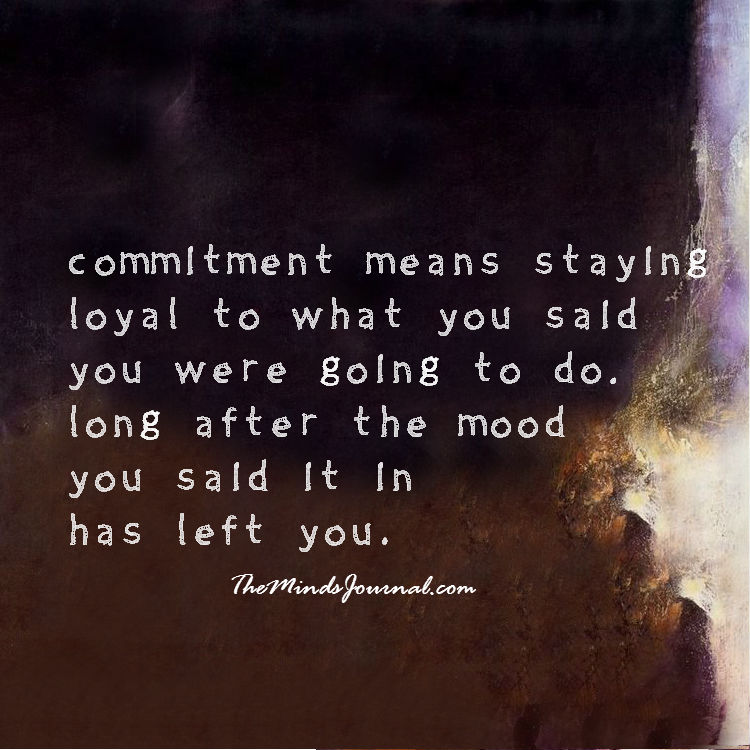Do you always find yourself in short-term, casual relationships? Does the idea of committing in a relationship make you nervous? Are you showing signs of lack of commitment in a relationship?
Commitment issues can be a significant barrier to building a healthy and fulfilling partnership, affecting both individuals involved. Today, let us explore what are commitment issues, the signs that may indicate their presence, the underlying causes of commitment issues, and effective strategies to overcome them.
By understanding these factors, you can empower yourself to navigate the complexities of relationships with greater confidence and clarity.
Are You Afraid of Commitment?
Alright, picture this: You’re in a great relationship with an amazing partner and everything is going peachy. You enjoy being with your partner, taking care of them and spending time together.
However, there is a bitter, irritating feeling inside that makes you feel trapped, suffocated and locked up. You feel like there is a chain around your ankle that keeps you from being truly free. And this feeling becomes really intense whenever you are asked to plunge into commitment.
There are clear hints from your partner that they want to move in together, or that they want to meet the parents. But every time the topic of commitment comes up, you avoid it like a ninja. If your partner talks about going on a vacation next month, you start planning for a solo trip instead.
Related: Commitment Phobia: 4 Things That Drive This Fear
Even the faintest hint of a need for commitment in your relationship makes you filled with anxiety and you pull off a disappearing act. You become detached, withdrawn, elusive and may even start to ghost your partner.
Although your partner may dream about having a future together, you skillfully deflect and avoid any discussion that moves toward long-term plans. In fact, you may even feel terrified of saying those three little words (you know what I am talking about), fearing you will get trapped into something you’re not really ready for.
You like to keep your options open. You love your freedom more than your partner. While there may be nothing wrong with that, you really need to be clear about your intentions from the get go. When you are in a relationship with someone, commitment and exclusivity are part of the package.
Most of us enjoy having a good time without being tied down with labels. But commitment issues do eventually creep and can completely shatter your relationship.
If this sounds like you, navigating commitment might feel like tiptoeing through a minefield. But understanding what are commitment issues and the signs of lack of commitment in a relationship can help you figure out how to overcome commitment issues in your relationship.
What Are Commitment Issues?
Commitment issues, also known as fear of commitment, refer to the reluctance or resistance to fully invest in a romantic relationship. Individuals experiencing commitment issues may find it challenging to engage in long-term commitments, such as marriage or deep emotional connections.
So, what are commitment issues? Researchers explain commitment in romantic relationships as “the intention to maintain a relationship over time.” When this intention is unclear or completely missing, then it can indicate there are issues with commitment in the relationship.
Individuals with commitment issues often avoid or hesitate to commit to a relationship’s future. These issues can arise due to various factors, including past experiences, attachment styles, fear of vulnerability, and personal fears. These issues can seriously impact relationship stability and growth.
Signs of Lack of Commitment in a Relationship That You Shouldn’t Ignore
Ever wondered if your partner is exhibiting signs of commitment issues? We’ve got you covered. From the fear of exclusivity to a reluctance to introduce you to their inner circle, we’ll shine a light on these telltale signs, empowering you with the knowledge to decipher the commitment conundrum.
Let’s unveil the subtle clues that indicate someone might be hesitant to take that plunge into commitment territory –
1. Fear of Exclusivity
One of the signs of commitment issues in a relationship is a fear of exclusivity. An individual with commitment issues may hesitate to commit to exclusivity and prefer to keep their options open.
They might express discomfort or avoid discussions about being in a committed, monogamous relationship.
Related: 5 Ways To Handle A Non-Committal Guy
2. Emotional Unavailability
Emotional unavailability is often one of the most important signs of commitment issues. Someone who struggles with commitment may have difficulty expressing or reciprocating deep emotions.
They might maintain emotional distance, reluctance to share vulnerabilities, or avoid engaging in intimate conversations.
3. Avoidance of Future Planning
A person with commitment issues may avoid conversations or plans that involve the future. They may hesitate to discuss long-term goals, such as moving in together, starting a family, or making career decisions together.
This avoidance can stem from a fear of being locked into commitments that they feel uncertain about. This is one of the major signs of lack of commitment in a relationship.
4. Reluctance to Introduce to Family and Friends
Introducing a partner to family and friends is often a significant step in a committed relationship. However, an individual with commitment issues may be hesitant or resistant to integrating their partner into their social circle.
This behavior can indicate a fear of emotional investment and a desire to keep relationships compartmentalized.
5. Uncertainty About Relationship Status
Commitment-phobic individuals often exhibit confusion or ambiguity about the status of their relationship.
They may avoid labels such as “boyfriend” or “girlfriend” and prefer to keep things casual, leaving their partner feeling uncertain about where they stand. This is one of the most common signs of commitment issues.

6. Difficulty Maintaining Long-Term Relationships
A pattern of short-lived relationships or a history of avoiding long-term commitments can be indicative of ongoing commitment issues.
Individuals with commitment issues may struggle to sustain relationships beyond the initial stages, fearing the vulnerability and responsibility that come with deeper connections.
Now that we have explored the signs of lack of commitment in a relationship, let’s focus on what factors contribute to this issue.
Causes of Commitment Issues: 3 Factors to Consider
Now, let’s dig deeper to understand why commitment issues rear their perplexing heads. By unraveling the complex tapestry of causes, we’ll gain insight into the why behind commitment issues, allowing us to approach the issue with empathy and understanding.
1. Fear of Rejection
Past experiences of rejection or heartbreak can contribute to commitment issues. A person who has been hurt in the past may develop a fear of opening up and forming deep emotional bonds, as they anticipate a potential repeat of the pain.
2. Attachment Style
Attachment styles developed in early childhood can influence one’s ability to form and sustain secure relationships later in life. Those with an avoidant attachment style may have difficulty with commitment due to a fear of dependency or intimacy. This is one of the primary causes of commitment issues.
Related: 4 Things That Keep Men From Committing To You
3. Traumatic Experiences
Traumatic experiences, such as infidelity, abuse, or witnessing dysfunctional relationships, can create deep-seated fears and distrust in romantic partnerships. These experiences may lead to commitment issues as a self-protective mechanism.
How to Overcome Commitment Issues: 7 Tips for Healthier Relationships
Wondering how to take charge and chart a course towards healthier, more fulfilling relationships? We’ll equip you with practical strategies and tools to overcome commitment issues.
Knowing the signs of lack of commitment in a relationship is not enough, as we must also learn how to improve our relationship. From self-reflection and emotional healing to open communication and seeking professional support, here is a compass to guide you through the choppy waters and towards the shores of commitment –
1. Self-Reflection and Awareness
Acknowledging and understanding your commitment issues is the first step towards overcoming them. Reflect on past experiences, emotions, and thought patterns that contribute to your fear of commitment. Seek therapy or counseling to gain deeper insights and develop coping strategies.
2. Emotional Healing
Address any emotional wounds or traumas that may be influencing your commitment issues. Engage in self-care practices, explore therapy options, and consider techniques such as journaling or meditation to promote emotional healing and growth.
3. Open Communication
Honest and open communication with your partner is crucial when dealing with commitment issues. Express your concerns, fears, and desires, allowing your partner to understand your perspective.
This dialogue can foster trust, empathy, and a shared commitment towards nurturing the relationship. This is one of the best tips on how to overcome commitment issues.
4. Gradual Steps and Patience
Take small, gradual steps towards commitment rather than diving headfirst into intense commitments. Gradually increasing emotional investment and allowing yourself time to adjust can help you build trust and confidence in the process.
5. Embrace Vulnerability
Allow yourself to be open and transparent with your partner about your fears and insecurities. By sharing your concerns, you create an environment of trust and understanding, fostering a deeper connection.
Remember, vulnerability is not a sign of weakness but a courageous act that paves the way for emotional growth and intimacy.
6. Practice Patience and Self-Compassion
Overcoming commitment issues takes time and patience. Be kind to yourself throughout the process, recognizing that healing and growth happen at your own pace. Celebrate small victories and acknowledge the progress you make, even if it’s gradual.
Remember, self-compassion allows room for self-discovery and fosters a nurturing environment for personal transformation.
7. Seek Professional Support
Don’t hesitate to seek professional help from therapists or relationship counselors who specialize in commitment issues. They can provide guidance, customized strategies, and support throughout your journey of overcoming commitment issues.
Related: How To Get Commitment From A Man Without Asking For It
Takeaway
Recognizing and addressing commitment issues is essential for building healthy and fulfilling relationships. By recognizing the signs of lack of commitment in a relationship, understanding the underlying causes of commitment issues, and implementing effective strategies on how to overcome commitment issues, you can transform your relationship journey.
Remember, overcoming commitment issues takes time, self-reflection, and open communication. With patience, support, and a willingness to confront your fears, you can create a strong foundation for a committed and loving partnership.
Frequently Asked Questions (FAQs):
How do you fix commitment issues in a relationship?
To address commitment issues, prioritize open communication, seek therapy to explore underlying fears, and work together on building trust and understanding.
Should I stay with someone with commitment issues?
Staying with someone with commitment issues requires mutual effort, willingness to address challenges together, and understanding boundaries.
What mental illness causes commitment issues?
Mental illnesses such as anxiety disorders, attachment disorders, and fear of intimacy can contribute to commitment issues in relationships.











Leave a Reply